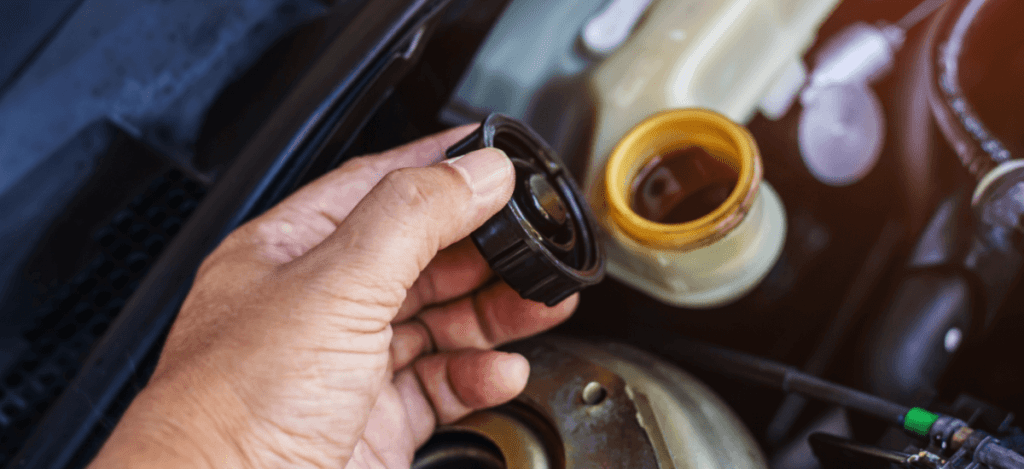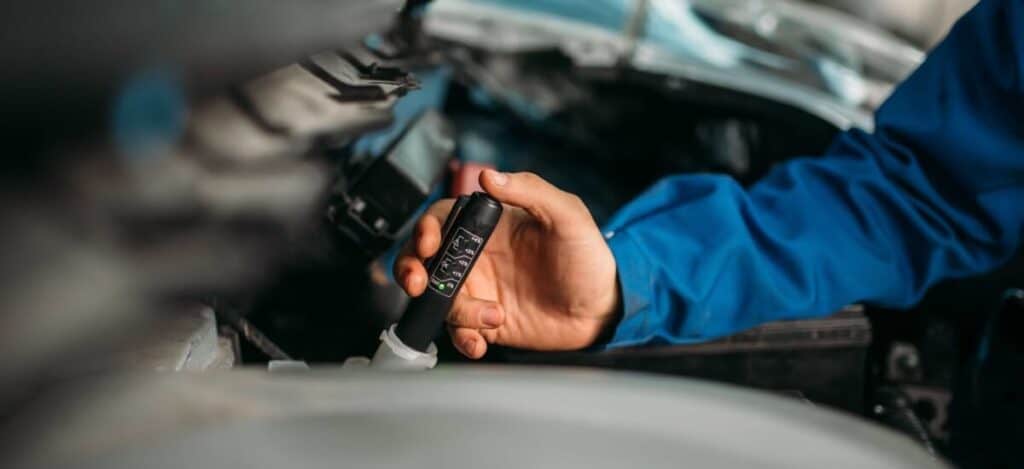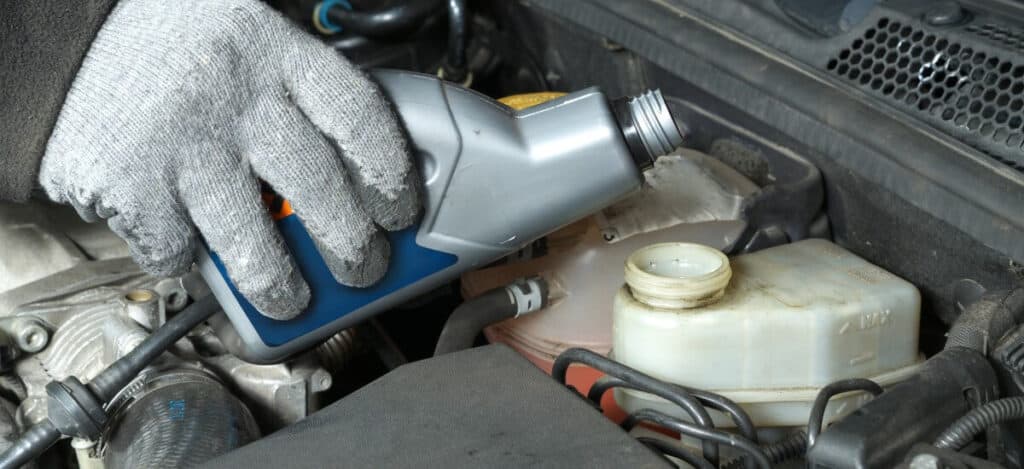If the brake fluid in your car becomes heavily contaminated, there’s some obstruction to its flow, or its level drops for some other reason, your braking system will be affected, resulting in loss of braking power. This is why it is important to schedule routine maintenance checks and change your brake fluid when the need arises. Brake fluid is ideally clear or transparent. This appearance changes over time and it’s not unusual that it turns a murky color after an extended period of use. When you spot this color change, it’s time to replace the brake fluid. Many manufacturers advise that brake fluid be changed once every 2 years. Check your user manual for specific guidelines as this requirement might differ depending on your manufacturer. As for distance, a rule of thumb is to change your brake fluid every 40,000 kilometers.

Signs of bad brake fluid
So what signs should you look out for to know when brake fluid change is due?
1. Color: Color is perhaps the most important indicator of brake fluid quality. A good practice would be to check your fluid appearance every two years. If the color is significantly off from its clear or transparent hue, it’s time for a change. If it appears muddy or laden with rust particles, have a mechanic inspect your car to ensure secondary issues, if any, are detected and addressed promptly. For the most part, brake fluid changes due to contact with moisture. If you’re unsure whether to change your brake fluid or not, an expert mechanic can help you decide.
2. Brake fluid level is low: You probably checked the brake fluid level or saw the dashboard warning light come on. In any case, low brake fluid level should not be taking for granted. This usually occurs when there’s a leak in the braking system or after a recent top-up. Ignoring leaks could leave your reservoir with less fluid than is needed for efficient operation, and thus put you at risk of losing braking power.
3. Spongy brake pedal and poor braking ability: Brake pedals should not feel spongy or soft when applied, if your hydraulic system is in good condition that is. Any problems in the hydraulic system, which drives braking ability, could make your pedal go soft or unusually low when you applied. Contaminated brake fluid is usually the culprit. So if you suspect this problem, schedule an inspection service with your mechanic and have the fluid changed.
4. The ABS or Check Engine light turns on: Today, most cars are designed to spot changes in engine function and alert you appropriately, usually by turning on the Check Engine or ABS warning light. If you’re running on low brake fluid, a sensor detects this trouble code and triggers the warning light. The computer on your ABS will also detect specific problems and indicate on your dashboard.

Dangers of Ignoring Brake Fluid Change
1. Risk of Contamination: You ideally shouldn’t open the brake fluid reservoir if there’s no real need to do that. Why? Because you risk letting in moisture. And when this occurs, your brake fluid will lose its purity, which will in turn comprise the efficiency of the braking system and increase your risk of brake failure. This is why the brake fluid is sealed airtight, away from exposure to external moisture and debris. However, it’s almost impossible to prevent minute moisture contamination in the long run. And thus the need to ensure you monitor purity and have a refill when the need arises. Left unattended, increased moisture in the brake fluid could lower the boiling point, and thus trigger overheating. Additionally, moisture can lead to build-up of vapor pockets within the brake fluid, which will in turn displace brake fluid and make you feel the “soft” pedal effect on the slightest application of the brakes.
2. Buildup of Debris: In addition to moisture, old brake fluid may also contain traces of debris, which can come from hose particles shedding minute rubber particles into the system over time. Metal corrosion due to moisture in the brake fluid environment could also land particles in the fluid. Debris may also trickle in if the brake fluid reservoir is not sealed properly. The ABS unit may eventually contain some debris, and the hydraulic unit might as well be affected. The ripple effect of which could render your ABS dysfunction and a drop in braking efficiency.
3. A Drop in Efficiency of the Braking System: Ignoring brake fluid maintenance routine will eventually lead to poor braking performance and make your car a safety risk. As stated earlier, braking problems can easily be detected on applying the pedal. If it goes too low or feels unusually soft, your brake fluid might be the culprit. You might also need to build up pump pressure by pressing repeatedly to bring your car to a halt. And there’s the unsettling possibility that your brakes might not respond altogether, a nightmare you never want to experience. Problems with any component of your car’s braking system should never be ignored. Always turn to your professional mechanic for inspection and routine maintenance service.

Bleeding vs. flushing your brakes
If your brake fluid is bad, you might need a bleeding or flushing service. For the most part, auto shops and dealers generally advise that flushing be done when servicing your fluid. The difference between the two? Here’s more.
• Bleeding: The goal of bleeding is to rid the brake lines of air and vacuum. This service is performed on all four brakes, and your mechanic will manually pump in new brake fluid during the process. A properly done bleeding service should have your pedal back to normal feel when you apply the brakes.
• Flushing: A flushing service is a more comprehensive procedure that requires total evacuation of old brake fluid for a new, clean fluid, usually with a flushing machine. Following complete removal of bad fluid, the machine pumps in new one via the brake lines. Done correctly, flushing ensures your braking system runs on 100% pure brake fluid, thus improving performance and braking power.
Don’t forget your manual
The best place to turn to for everything about your braking system is your owner’s manual. Here you’ll find routine maintenance tips to ensure your braking system performs optimally.
Hire professional service
Brake system problems shouldn’t be ignored. If you suspect anything is off with your braking system, a professional can help you identify faults and provide the right repair service. We know how braking systems should perform and are always ready to help. Contact us today for a comprehensive brake fluid inspection and replacement service.
